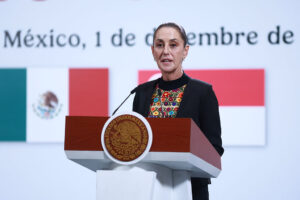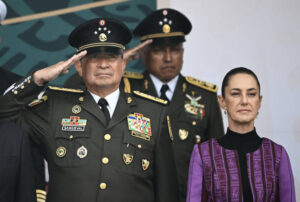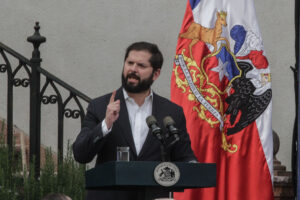
Reinventing Venezuela’s Struggling Electricity Sector
Having enough electricity is key to the nation’s post-Maduro recovery. Two experts offer a way forward.

The Way Forward For Venezuela
A successful transition will depend on investment, who leads the military, and more.

Venezuela: The Post-Maduro Oil, Gas and Mining Outlook
The country could see a relatively rapid recovery of some oil production, depending on the leadership that emerges.

Sheinbaum’s Triple Economic Dilemma
Mexico faces critical decisions regarding state-owned companies, fiscal deficit, and the nation’s low productivity, an expert writes.

The Risks and Benefits of Trump’s Latin America Trade Deals
The agreements are potentially historic – but some countries have been left out, and a Supreme Court challenge looms.

The Necessary Quest for Latin American Unity
Current policies toward the region make speaking with a common voice even more urgent, writes a former Costa Rican president.

Sheinbaum Has a Crucial Decision to Make on Mexico’s Education
The use of the education system for partisan goals has undermined the implementation of ambitious reforms. Will that change?

Uruguay: Orsi’s Main Challenge
The nation’s new president will spend more time and energy managing his core supporters than dealing with his political opponents.

Mexico Is Growing Old. Can It Build a Care System in Time?
The country’s demographic bonus ends with Sheinbaum’s presidency, offering a chance to rethink care and close workforce gender gaps.

Ecuador’s High-Stakes Elections
Anti-establishment sentiment will likely shape the February 9 vote.

Ecuador Needs a Different Approach to Fighting Organized Crime
Daniel Noboa’s government should prioritize reforms to the justice system.

In Ecuador, Mounting Challenges Threaten Noboa’s Reelection
Crime, an energy crisis, and economic stagnation may dim the president’s chances in the February 2025 contest.

Why Sheinbaum May Take a Different Path on Mexico’s Security
The new president’s experience as mayor points to an approach more rooted in enhanced intelligence, mediation, and deterrence.

A Hegemonic State Takes Shape in Venezuela
The consolidation of a totalitarian regime poses a dilemma to the opposition: continue the electoral strategy or find an elusive new approach.

Gabriel Boric’s Unlikely Legacy
Chile’s president is steering the country back to its tradition of moderate politics.


